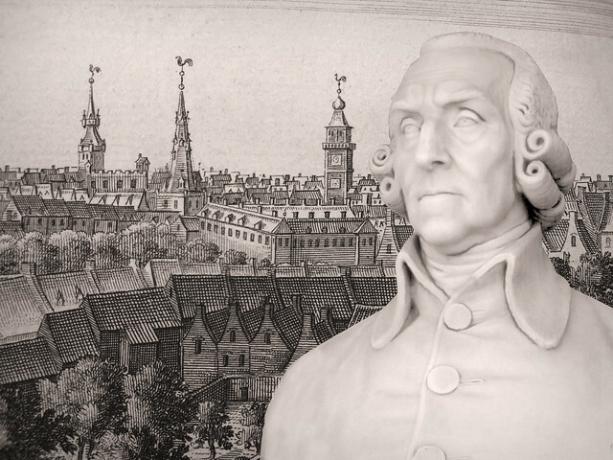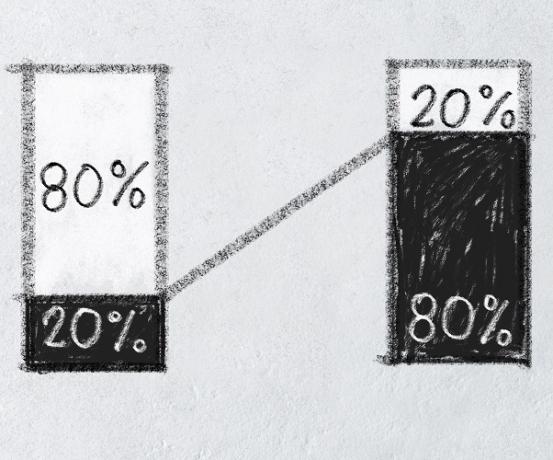Invisible hand is a concept created by the philosopher and economist Adam Smith, in his book A Riqueza das Nações, published in 1776.
According to the concept of invisible hand, the free market would self-regulate, without the need for state intervention.
Thus, the economic growth and progress of a Nation would be achieved with a free society, where people act according to their personal interests.
The "Invisible Hand" in Economics
In the pursuit of their interests, individuals would contribute to market balance. This would happen because, even without the intention of collaborating with other agents, this dynamic would culminate in a positive situation for society as a whole.
This balance would be the result of what we know today as the law of supply and demand.
According to this law, the price of a product is determined by the balance between the number of companies that offer the product and the number of consumers looking for it.
The invisible hand is, therefore, a symbolic representation of the idea that the market itself organizes itself in the best possible way.
know more about economy and law of supply and demand.
Who was Adam Smith?
Adam Smith was born in Scotland and studied philosophy at Oxford University, became a professor and in 1759 published his first book, The Theory of Moral Sentiments.
In subsequent years, Smith paid more attention to economics and left his teaching position in 1763, when he was invited to tutor the young Duke of Buccleuch of England.
He traveled with him to other countries, especially France, where he met great intellectuals, including the economist François Quesnay.
In 1766 he returned to his hometown and dedicated his next 10 years to the book that would become one of the greatest classics of political economy, The Wealth of Nations.
 Illustration by Adam Smith, considered the father of economic liberalism.
Illustration by Adam Smith, considered the father of economic liberalism.
The book The Wealth of Nations
The Wealth of Nations was published in the middle of Industrial Revolution in England and was opposed to the system in force since the fifteenth century, but which was now falling into decay - mercantilism.
O mercantilism was characterized by a strong state intervention in the economy. In the book, the author defended free trade, as he believed that the free action of economic agents would result in an optimal situation, with maximum efficiency.
It is interesting to note that, although the term “invisible hand” has become popular, the expression appears only once in the book.
See also the meaning of Industrial Revolution and mercantilism.
The role of the state in the economy for Adam Smith
For Adam Smith, the state should interfere as little as possible in the economy and people's lives. However, he argued that a free market economy would only work if certain laws were followed.
Ensure justice, therefore, was the fundamental role of the state. After all, for the proper functioning of the market, property should be assured and contracts should be honored.
Other functions of the state, according to Adam Smith:
- Defense of society against external enemies.
- Protection of individuals against mutual offenses.
- Achievements of public works that could not be carried out by the private sector.
economic liberalism
Economic liberalism emerged in the late 17th century, in the context of the decay of mercantilism and the construction of National States. Liberals were against state control over the economy, as was the case in the mercantile system.
These thinkers believed that individuals, organizations and nations should be free to carry out its economic activities and that if there was any mismatch, the market itself self-regulation.
Unlike mercantilism, which was based on protectionism, liberalism advocated free competition. The products would be traded freely and their prices adjusted according to the law of supply and demand.
The State, therefore, should not interfere in the economy, with roles such as protecting private property and maintaining order and peace.
Main works by Adam Smith
- Theory of Moral Sentiments (1759)
- The Wealth of Nations (1776)
See also the meaning of economic liberalism and Private propriety.

